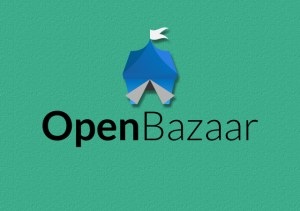
On August 25, 2015, Agora announced that it would go offline as the result of “suspicious activity,” which it believed to be attempts at breaking through their security protections. The online drug market uses the anonymous communication software, Tor, to protect its servers and customers from third-party, and more specifically, government snooping. Tor works through a decentralized network of volunteer computers that encrypts user’s data and IP’s with an extensive series of relays.
Also read: Silk Road Shutdown Only Temporarily Stifled Online Drug Sales
 According to Agora administrators, the marketplace needs this hiatus so the team has a chance to implement software updates to better protect the site. And at this point, Agora does not have solutions ready, making it unsafe for its users to continue operations. The question remains for why the administrators now believe that current threats are legitimate enough to break through the protections that Tor offers. After all, Tor is renowned and currently unchallenged in terms of the success it has had in protecting people’s internet privacy. Both critics and advocates alike recognize the abilities of the program, with even the NSA characterizing it as the “King of high-secure, low-latency Internet anonymity” with “no contenders for the throne in waiting.” However, it’s likely that it is a response to a paper that was published in July, 2015 by a group of researchers from MIT and Qatar University.
According to Agora administrators, the marketplace needs this hiatus so the team has a chance to implement software updates to better protect the site. And at this point, Agora does not have solutions ready, making it unsafe for its users to continue operations. The question remains for why the administrators now believe that current threats are legitimate enough to break through the protections that Tor offers. After all, Tor is renowned and currently unchallenged in terms of the success it has had in protecting people’s internet privacy. Both critics and advocates alike recognize the abilities of the program, with even the NSA characterizing it as the “King of high-secure, low-latency Internet anonymity” with “no contenders for the throne in waiting.” However, it’s likely that it is a response to a paper that was published in July, 2015 by a group of researchers from MIT and Qatar University.
The Paper proposed a new method dubbed “finger-printing” that would allow Tor services to be identified with 88% accuracy. The Tor Project responded to the research paper by explaining how difficult the method would be to implement because of the amount of resources that would be needed. It would require controlling large portions of the network, which can only be done by acquiring many of the nodes or privately owned computers that make up the network. Despite the Tor Project’s assurance that such a method would be impractical, Agora admins are not quite convinced, writing:
“Most of the new and previously known methods do require substantial resources to be executed, but the new research shows that the amount of resources could be much lower than expected, and in our case we do believe we have interested parties who possess such resources.”
Agora also likely decided to shut down because of the history of online drug markets being terminated by law enforcement agencies by seizing their servers. Probably the most well known example is that of Silk Road. Before being shut down by the FBI in 2013, Silk Road was one of the largest online drug markets in the world, with an estimated $15 million in transactions made daily and over $1.2 billion generated in revenue over its entire 2-year lifespan. Despite Silk Road’s use of Tor, its real IP was ultimately found and the server subsequently shut down. Although the FBI claimed it found the server’s real IP from data leaked through the site’s CAPTCHA, security researchers believe the site’s login page was manipulated during site maintenance to show the server’s real IP.
 Although Agora’s preemptive decision to shut down could be considered an improvement — learning from mistakes of previous marketplaces — recognition and reaction time isn’t really the problem, nor the cause, of such seizures. Therefore, simply identifying possible government activities sooner cannot necessarily stop such seizures from occurring. The primary cause of such governmental seizures comes from reliance on centralized institutions and databases.
Although Agora’s preemptive decision to shut down could be considered an improvement — learning from mistakes of previous marketplaces — recognition and reaction time isn’t really the problem, nor the cause, of such seizures. Therefore, simply identifying possible government activities sooner cannot necessarily stop such seizures from occurring. The primary cause of such governmental seizures comes from reliance on centralized institutions and databases.
Centralized institutions are the fatal flaw in privacy protection among many industries and markets. The reason is simple enough; centralized servers allow for a single point of failure, where the entire system stops working if those servers go offline. Those centralized institutions are the starting and stopping point, they consolidate all operational control to a central point.
Thus, if the problem is centralization then it necessarily follows that decentralization is the solution. It also just so happens that the idea of decentralized online drug markets is, with people beginning to recognize them as the solution to these problems.
One specific example of this is OpenBazaar. OpenBazaar is a proposed system that operates on a decentralized network, where anyone with a computer can act as a server to help facilitate exchanges. In essence, instead of having one server base, everyone engaging in the market makes up a single part of one system. Acting in cooperation with one another, millions of individuals become the mainframe of the network. The system is modular, meaning that it can adapt to any changes — allowing anyone to join or leave at any time without having any substantial effects on the performance of the system. Possibly the most interesting aspect of OpenBazaar is how it employs blockchain technology. Instead of just using it to send and receive currency, it allows for other data to be injected into blocks such as usernames so that no one can impersonate anyone else.
On another note, the persistence of online black markets to continue operations even after concerted efforts to shut them down only acts as further evidence of the failure of the war on drugs. Despite a recent uptick in crack downs on online drug marketplaces, such efforts have increasingly led to what has become only temporary setbacks for the online drug markets. Global operations are discovered and shut down only to be replaced by even larger ones, where even more people engage in illicit drug exchanges than before. Whether law enforcement agencies begin to see the futility of their efforts or not, in any case they will continue to waste resources on a doomed struggle counter-intuitive to its own end until eventually society takes them out of the equation entirely.
What do you think of Agora’s decision to go offline? Let us know in the comments below!
Sources: Wired, Motherboard.vice.com
The opinions expressed in this article do not necessarily reflect those of Bitcoinist.net.


















